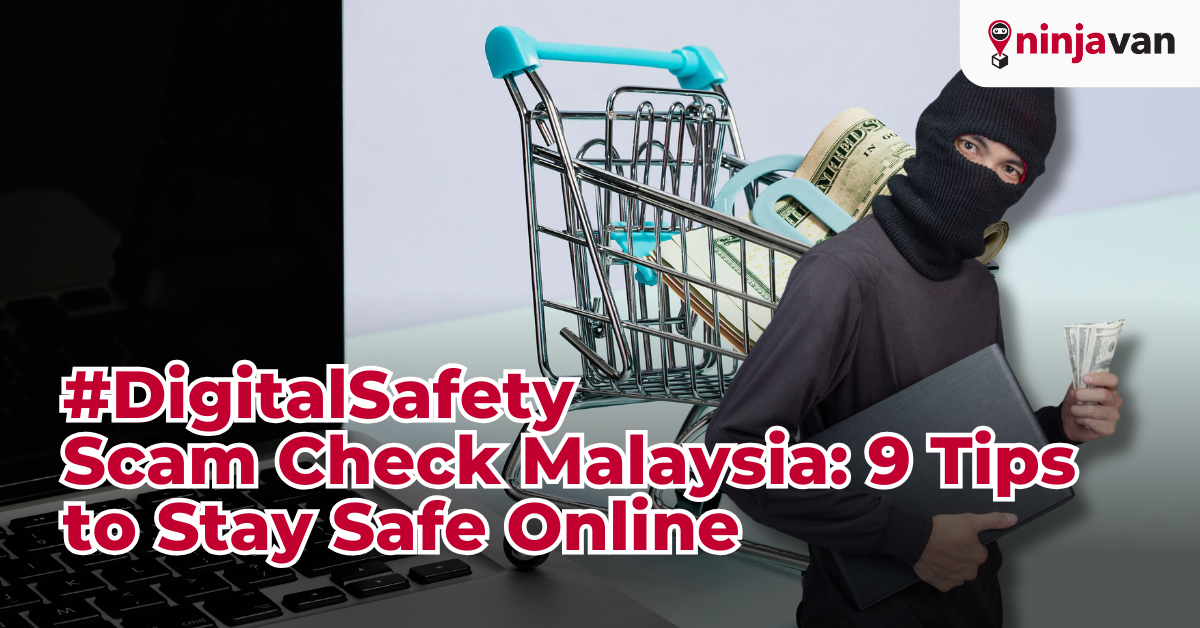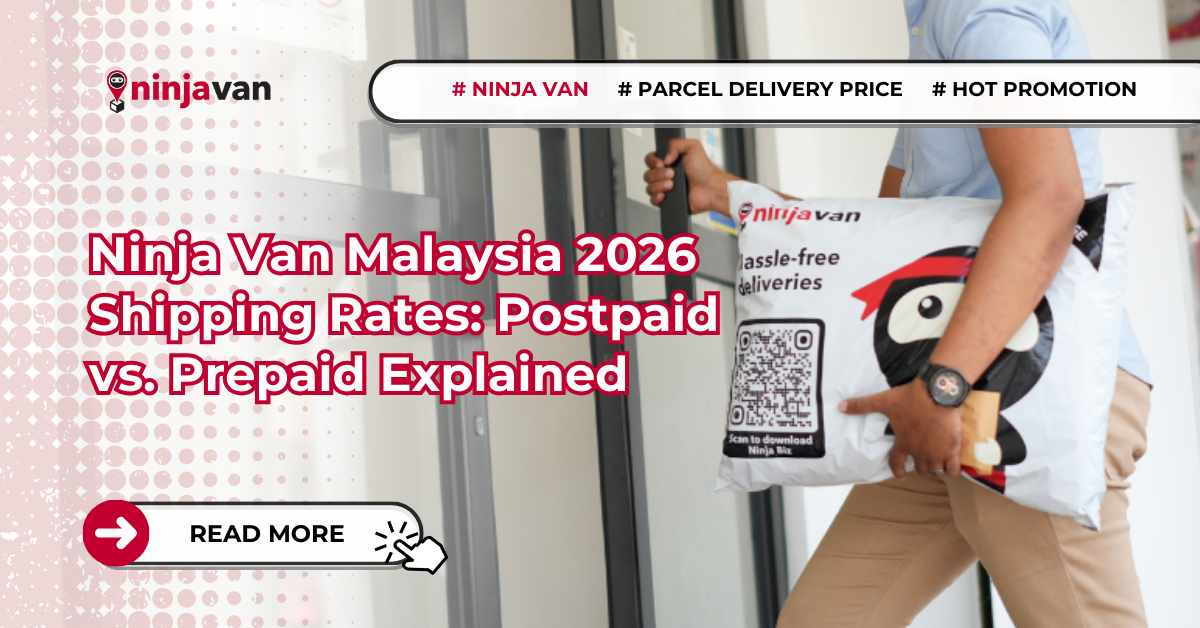Ever almost gotten scammed online? 🙋♀️
You’re not alone!
Online shopping in Malaysia is awesome, but it’s important to know how to scam check before you click “buy.”
This post will list down the common scams and share some simple tips to keep your money safe and your online shopping experience smooth sailing. Let’s start!
Online Shopping in Malaysia: The Good, the Bad, and the Ugly
Online shopping in Malaysia has taken off like never before—and for all the right reasons!
Whether you’re exploring online shopping platforms in Malaysia or indulging in the latest trends from China online shopping sites, the ease of buying from your couch is hard to beat.
But with every convenience comes caution.
Let’s dive into the advantages and disadvantages of online shopping to help you shop smarter and safer.
| The Good | The Bad |
| Convenience anytime, anywhere: Say goodbye to crowded malls and long queues. Online shopping makes it easy to browse and buy from the comfort of your home. | Rising scams in Malaysia: Fake products, phishing sites, and undelivered orders top the list of complaints in many scam reports in Malaysia. |
| Wider selection of products: From local treasures to international items on China online shopping platforms, you’ll find almost anything you need. | Security concerns: Shopping online means sharing personal information, which can lead to data breaches and identity theft. |
| Better deals and discounts: Many platforms offer exclusive discounts, cashback rewards, and flash sales that are hard to resist. | Impulse buying regrets: Flashy ads and easy checkout options often lead to spending more than you planned. |
While the advantages of online shopping are undeniable, it’s important to be aware of the possible risks.
5 Most Common Scams in Malaysia to Watch Out For!
Online shopping in Malaysia can be fun and convenient, but it’s also a playground for scammers. There are plenty of traps to dodge.
Let’s explore the most common scams in Malaysia and how to outsmart them!
1. Phishing Scams: The “Clickbait” Emails and Messages
Ever received an email telling you that you’ve won a lottery you never entered?
Or a DM asking you to update your bank details urgently?
These are classic phishing scams.
Scammers use fake links to steal your personal or financial information.
🔒 How to Avoid It:
- Never click on suspicious links or download unknown attachments—shortened URLs like bit.ly, or typosquatting URLs (eg., faceb00k.com)
- Double-check the sender’s email address and look for odd spelling or formatting.
2. E-Commerce Fraud: When Your Order Goes MIA
You’ve spotted an amazing deal on an online shopping platform in Malaysia, but when the package arrives (if it does), it’s not what you ordered.
Fake websites and fake sellers often trick buyers with counterfeit products or never deliver anything at all.
🔒 How to Avoid It:
- Only shop from trusted platforms with secure payment options. (Shopee, TikTok, Zalora, etc.)
- Read reviews and ratings to ensure the seller is legit.
3. Social Media Scams—Get “FREE” Products!
While social media scams are on the rise in Malaysia, scammers are taking this opportunity to easily use fake accounts, ads, and influencer posts to promote fake deals or fake giveaways.
These often come with a catch—like asking for your personal information or upfront payment.
In a recent wave of scams, fraudsters are exploiting AI technology to convincingly replicate Khairul Aming‘s face in their advertisements and videos.
These deceptive tactics lure unsuspecting viewers into purchasing products Khairul Aming doesn’t endorse or paying for goods that never arrive.
@lobakmerahmy Sejak belakangan ini semakin banyak dipaparkan kesan negatif apabila teknologi AI ini digunakan tanpa batasan. Personaliti media sosial yang juga usahawan, Khairul Aming mendedahkan ada pihak memanipulasi wajah dan suaranya menggunakan teknologi AI untuk melakukan penipuan jualan. Perkara itu dimaklumkan menerusi satu video di akaun media sosialnya bagi mengelak orang ramai menjadi mangsa penipuan. Tegas usahawan itu, setakat ini dia hanya menjalankan perniagaan menjual Sambal Nyet Berapi dan Dendeng Nyet sahaja. Untuk berita penuh boleh baca di kotak hijau di atas Kredit video: TT @khairulaming P/s: Video di atas bukan hak milik Lobak Merah dan kami telah meletakkan kredit kepada pemilik video. Sekiranya anda ingin menurunkan sebarang video, Sila DM kami dalam kadar segera. Terima Kasih! Jangan lupa untuk Like, Comment. Share dan Follow Lobak Merah! 🧡 Terima Kasih! fyp fypシ lobakmerahmy beritaditiktok viralstory trending trendingnewsmalaysia ceritaviral terkini viralupdates storyviral
♬ Spooky, quiet, scary atmosphere piano songs – Skittlegirl Sound
This not only harms consumers but also severely damages Khairul Aming’s reputation and image.
Fortunately, Khairul Aming has taken to his personal TikTok account to expose these scams and warn his followers.
🔒 How to Avoid It:
- Be cautious of deals that seem “too good to be true.”
- Avoid giveaways that ask for sensitive information or fees.
4. Online Dating Scams: Love at First Swipe?
Online dating has its perks, but it’s also a goldmine for scammers.
They might try to earn your trust before asking for money or personal details.
🔒 How to Avoid It:
- Be skeptical of anyone asking for money, especially early on.
- Trust your instincts—if it feels off, it probably is.
9 Tips to Avoid Getting Scammed (in Malaysia and Beyond)
Alright, let’s get down to business!
Here are 8 tips to help you avoid getting scammed online:
1. Website Check
Before clicking “buy,” ensure the website is secure.
Look for the padlock icon in the address bar and a URL that starts with “https://.” Legit sites often provide clear contact details, like a phone number or physical address.
🔍 Pro Tip: Avoid unverified sellers on social media and stick to trusted platforms like Lazada, Shopee, or Mudah.my.
2. Beware of Deals That Seem Too Good to Be True
Super low prices and urgent calls to action are red flags.
Scammers love to create a false sense of urgency, pressuring you to make hasty decisions.
💡 Reminder: If it feels too good to be true, it probably is!
3. Use Secure Payment Methods
Use secure payment methods like credit cards with strong fraud protection.
Online payment platforms like Touch ‘n Go eWallet, GrabPay, and ShopeePay (or PayPal) can also offer extra security.
4. Research the Seller
Before making a purchase, check online reviews and ratings.
Reputable platforms like Mudah.my and Lelong.my often include seller ratings to help you decide.
👥 Tip: For international purchases, especially on China online shopping platforms, ensure the seller has a good reputation.
5. Avoid Unverified Sellers
Stick to established online shopping platforms in Malaysia.
Sellers who communicate solely via social media or messaging apps should raise a red flag.
⚠️ Warning: If the seller insists on meeting off-platform or uses vague payment methods, think twice.
6. Protect Your Personal Information
Never share sensitive details like passwords or bank information unless you’re on a verified and secure website.
Be extra cautious with emails or messages that seem suspicious—they could be phishing attempts.
7. Create Strong Passwords
A unique, strong password is your first line of defense against hackers.
Use a mix of letters, numbers, and symbols to make it harder for scammers to gain access.
🔑 Quick Tip: Avoid reusing passwords across multiple accounts.
8. Report Suspicious Activity
If you encounter a scam, report it to the relevant authorities.
You can also report fraudulent websites to the Malaysian Communications and Multimedia Commission (MCMC).
Here is the link to file complaints via the MCMC Aduan portal.
9. Enable Two-Factor Authentication (2FA)
2FA adds an extra layer of security to your online accounts.
It requires you to enter a code (usually sent to your phone) in addition to your password when logging in.
Why is it important?
Even if someone gets your password, they won’t be able to access your accounts without the 2FA code.
Final Thoughts
Staying safe online is crucial, especially with scam check Malaysia becoming more important than ever.
By being aware of common scams and following these tips, you can enjoy the convenience of online shopping without the worry.
Remember, if something seems too good to be true, it probably is!
🚨 For extra info on parcel delivery scams (including COD!), check out this guide!







